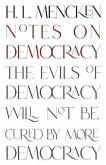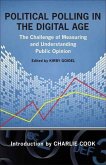In his groundbreaking work Public Opinion (1922), Walter Lippmann, an eminent American writer and political commentator, delves into the intricate dynamics of democracy, shedding light on the pivotal role of citizens. He warns against the perils of propaganda, anticipating its sway on public perception. Lippmann challenges the efficacy of journalism in informing the populace, asserting that individuals tend to rely on preconceived notions rather than critical analysis. He calls the notion of a public competent to direct public affairs a "false ideal" and identifies the inherent biases in human cognition. Lippmann's insights into the importance of the dissemination of accurate information to a functioning democracy, the limitations of public engagement in governance, and the influence of media on shaping public opinion remain startlingly relevant in our time. Uncanny, prescient, and far-sighted, Public Opinion is an enduring cornerstone in political discourse and media studies. This Warbler Classics edition includes a detailed biographical timeline.
Hinweis: Dieser Artikel kann nur an eine deutsche Lieferadresse ausgeliefert werden.
Hinweis: Dieser Artikel kann nur an eine deutsche Lieferadresse ausgeliefert werden.








